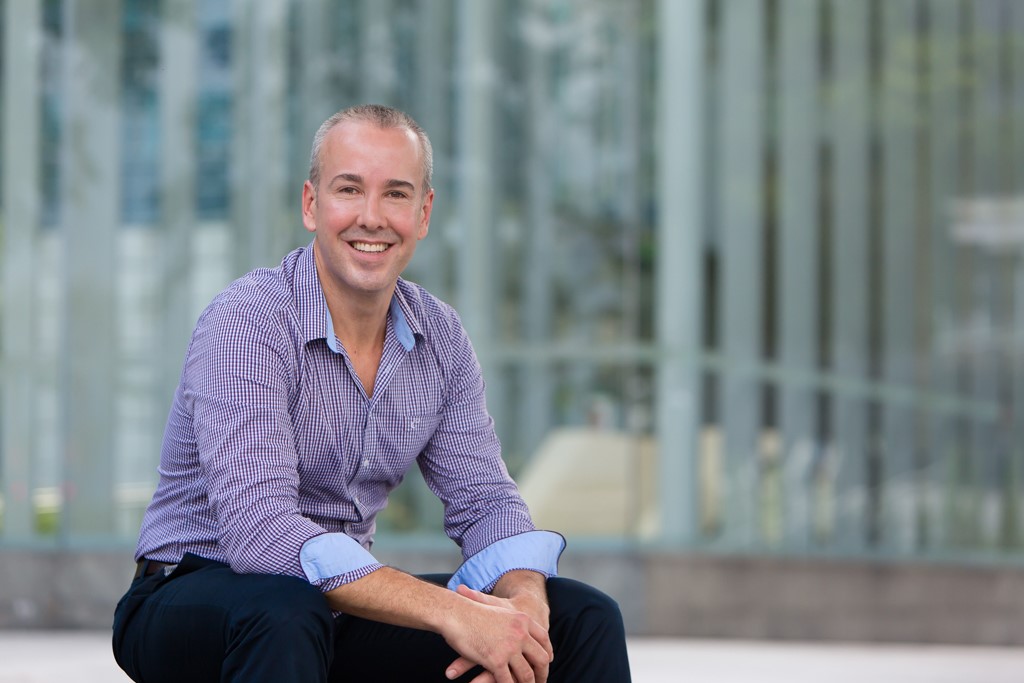Jamie Camidge of muru-D
Jamie Camidge
Jamie
Camidge of muru-D
muru-D as part of the
continuing digital journey experience
By Vincent Pacheco
The startup environment seems so simple yet plagued with obscurities that a lot of business-minded men ignore as they delve into the competitive market filled with startups and traditional companies. We see more and more startups popping out of nowhere, and what we hear about are the successful ones. Of course, in the ever-growing market, there are also failed ventures we don’t usually hear about. The average guy would usually attribute these failed ventures to nonsensical reasons such as…
These assumptions however, are not always
accurate and are always vague. To explain such obscurities we have Jamie
Camidge from Muru-D to elaborate on the more intricate aspects of startup
ventures through personal anecdotes and experience with other startups.
Backstory of ups and downs
When asked how he got into tech, Jamie jokingly remarks that his first ever computer – “a Macintosh” was his starting point in the technological world. He puts those aside as he seriously recounts the time he and his business partners (who were manager consultants) saw “a massive opportunity in the mortgage lending industry” in the year 2000. With that opportunity, they made an IT platform which, as Jamie says “basically connected brokers and banks and took cost and time out of the industry”. The company ran for 8 years, earning a revenue of $25 million until the global financial crisis forced them to close down.
This forced Jamie to go corporate, which
was not a problem as he was a business strategist by profession and he has
spent years advising big corporations in Australia. As such, thrived and went
up the ranks in Telstra until he took the opportunity to open up muru-D in
Singapore.
muru-D – What is it?
Muru-D is a company that caters to early
stage startup businesses in tech sectors in the ASEAN region. They provide seed
capital, training, mentoring and commercialization support to their clients.
In muru-D, emphasis is placed on
“opportunity identification instead of being fascinated with the [startup]
phase. Time is spent with founders to help them, as Jamie says “to analyze
market problems, product market fit questions, fund raising strategies and team
management”. The end goal of muru-D is to be a catalyst in the formation of
international businesses.
On
the nature of startups
Jamie frankly states that “he was never
attracted to startups”. He explains that he is surprised with the modern
obsession to startups when in fact it is only “a phase in a business cycle”.
Startups during the 2000’s are radically different from the contemporary
startups. Jamie adds “Before, it took as a year and a million dollars to build
our first product”. Now, there are communities and methodologies present,
making it easier for startups to supposedly thrive. However, this also presents
a problem as Jamie explains that “people are becoming too obsessed with the
community and the early phase of the business”.
Another thing he noticed is that
companies tend to focus too much on product and market design research when the
focus should be on the product. Jamie here emphasizes that it’s simple as “building
basic a product, and putting it into the hands of the customers”. He cites an
example of a certain company that spent 6 months on product design research
when that amount of time can be used to make the product itself.
The obsession with product and designs
produces another effect: over engineering. Jamie states that “If you aren’t
embarrassed by the quality of the product in the hands of your first customers,
then you’re over engineering it” he adds that “You should be slightly
embarrassed about it”. This is because your minimum viable product should not
look pretty but rather it should work. Aesthetics becomes an unnecessary added
cost for startups at this point.
Words for aspiring startups
“Think global” Jamie says. One of
Jamie’s problems with most SEA founders is that they merely focus on their home
market and not the foreign markets. Thus, he encourages aspiring founders to
tackle on market problems present domestically and internationally. An example
he gives is the AgriTech businesses in the Philippines. Jamie states that this
model can easily penetrate neighboring SEA countries such as Vietnam and this
opportunity can billions of dollars for those who can maximize on this
opportunity.
Focusing on only the home market will
inhibit long term growth in the long run. Of course startups should act local at first but there must be a
consistent global way of thinking.
Jamie also indirectly advises that
people should avoid getting into AdTech as the market has become saturated with
huge investors putting money into it. More competitors equates to less profits
and opportunity.
As muru
basically means “journey” in the Aborigine tongue, we see that a digital
journey has intricate details an aspiring founder should look into. The fast
paced world always gives more and more opportunities. The thing is, can it be
viably maximized without intricate knowledge of the new factors that came into
play?
Are you a startup, investor or corporation? Or do you just enjoy talking about startups? There are many ways that you can work with TechShake.
We’d love to hear from you!